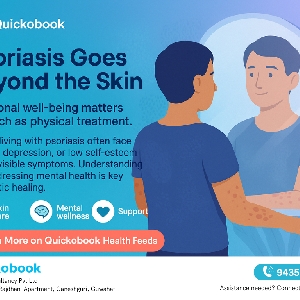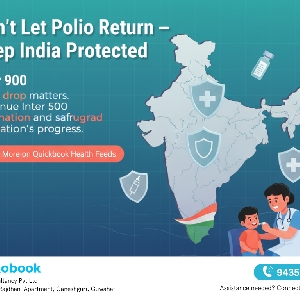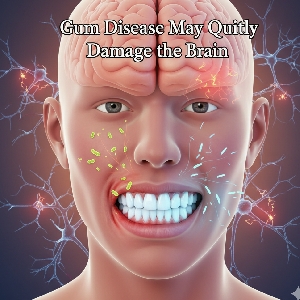Psoriasis And Its Impact On Mental Health
Introduction Psoriasis is more than a skin disease — it’s a chronic autoimmune condition that deeply affects both physical appearance and mental health. In India, millions of people struggle with the emotional and social challenges of psoriasis, from visible red patches to feelings of embarrassment, depression, and isolation. This blog explores how psoriasis impacts mental well-being, what treatments are available, and how to seek the right help from a dermatologist and mental health professional. What is Psoriasis? Psoriasis is a chronic autoimmune skin condition that speeds up the life cycle of skin cells, causing them to build up rapidly. This leads to thick, scaly, itchy patches, often on the elbows, knees, scalp, and lower back. It is non-contagious, but highly visible — making social interactions difficult for many patients. Key facts: Affects over 1 crore Indians (source: IADVL) Can start at any age, but often appears between 15–35 years Common triggers include stress, infection, cold weather, alcohol, and smoking How Psoriasis Affects Mental Health While psoriasis causes physical discomfort, its emotional burden can be equally painful. Patients often experience: Depression – Persistent sadness, loss of interest, and low energy due to social stigma and visible lesions. Anxiety – Fear of being judged or avoided by others. Body image issues – The appearance of patches may lower confidence and self-esteem. Social withdrawal – Many patients avoid social gatherings, leading to loneliness. Sleep problems – Itching and pain can interrupt rest, worsening mood. According to Indian dermatology studies, over 30–40% of psoriasis patients show signs of clinical depression. Addressing these issues is vital for overall healing. Causes and Triggers Although the exact cause of psoriasis remains unclear, both genetic and environmental factors play a role. Common triggers: Stress or emotional trauma Skin injuries (Koebner phenomenon) Certain medications (beta-blockers, lithium) Infections (especially throat infections) Cold, dry weather Excess alcohol or smoking Managing these triggers can reduce flare-ups and help maintain emotional balance. READ ALSO: Why Dismantling India’s Polio Network Could Invite The Virus Back, Say Doctors The Psychological Cycle of Psoriasis Psoriasis and mental health create a vicious cycle. Stress can trigger flare-ups, and flare-ups increase stress — worsening the condition further. Breaking this loop through proper management, counselling, and mindfulness is essential. Example: A patient with psoriasis feels anxious about their appearance → Stress causes more flare-ups → Anxiety worsens → Quality of life drops. Diagnosis A dermatologist can usually diagnose psoriasis through a physical exam. In rare cases, a skin biopsy is done. Patients should also be screened for depression and anxiety during consultations. Tools like the Psoriasis Disability Index (PDI) and Dermatology Life Quality Index (DLQI) can measure how much psoriasis affects daily life and emotions. Treatment Options There’s no permanent cure for psoriasis, but effective treatment can control symptoms and improve mental health. 1. Topical Treatments Corticosteroid creams reduce inflammation and itching. Vitamin D analogues and coal tar help slow skin cell growth. Moisturisers soothe dryness and irritation. 2. Phototherapy UV light therapy (under medical supervision) helps reduce plaques and flare-ups. 3. Systemic Medications Oral or injectable drugs like methotrexate, cyclosporine, or biologics are used for moderate to severe cases. ???? Dosage depends on your dermatologist’s advice — never self-medicate. 4. Mental Health Support Counselling or Cognitive Behavioural Therapy (CBT) can help manage depression and anxiety. Support groups reduce feelings of isolation. Relaxation techniques (meditation, yoga, breathing exercises) help break the stress-psoriasis cycle. Lifestyle and Home Remedies Small daily changes can make a big difference: Follow a balanced diet rich in antioxidants (fruits, vegetables, omega-3 fats). Stay hydrated to maintain skin elasticity. Avoid alcohol and smoking. Use mild soaps and moisturisers. Exercise regularly to reduce stress. Sleep 7–8 hours daily for hormonal balance. Prevention and Emotional Wellness Tips While psoriasis cannot be prevented entirely, flare-ups and emotional stress can be minimized by: Managing stress with yoga or meditation. Maintaining a daily skincare routine. Talking openly with your dermatologist and therapist. Avoiding triggers like harsh soaps or sudden weather changes. Joining online psoriasis awareness communities. When to See a Doctor You should consult a dermatologist if you experience: Painful or bleeding skin lesions Severe itching that disturbs sleep Signs of infection or joint pain Emotional distress, anxiety, or depression Early treatment can prevent complications like psoriatic arthritis and chronic mental health issues. Risks and Complications Untreated psoriasis can lead to: Psoriatic arthritis Secondary infections Metabolic syndrome (obesity, diabetes, heart disease) Severe depression or suicidal thoughts Holistic management — physical and emotional — ensures better long-term control. FAQs: Psoriasis and Mental Health 1. What is psoriasis? Psoriasis is a chronic autoimmune skin disease that causes red, scaly patches due to rapid skin cell buildup. It is not contagious. 2. Can psoriasis affect my mental health? Yes. The visible symptoms can cause stress, depression, and low self-esteem, especially in social situations. 3. Is psoriasis curable? There is no permanent cure, but treatment from a dermatologist can control symptoms and prevent flare-ups. 4. Why do people with psoriasis feel depressed? Constant itching, pain, and appearance-related stigma can lead to feelings of sadness and worthlessness. 5. How common is depression in psoriasis patients? Studies show around 30–40% of people with psoriasis experience clinical depression or anxiety. 6. Can stress make psoriasis worse? Yes. Stress is a known trigger that can worsen psoriasis symptoms and delay healing. 7. Is psoriasis contagious? No. Psoriasis cannot be spread by touch, sharing clothes, or close contact. 8. Can mental health treatment help psoriasis? Yes. Therapies like counselling and stress management can reduce flare-ups and improve quality of life. 9. What triggers psoriasis? Common triggers include infections, skin injury, cold weather, alcohol, and emotional stress. 10. Who should I consult for psoriasis? A dermatologist for skin care and a psychologist or psychiatrist for emotional support. 11. Can psoriasis cause anxiety? Yes. Fear of judgment, social withdrawal, and chronic discomfort often lead to anxiety. 12. Does psoriasis affect sleep? Yes. Itching, pain, and emotional distress can cause poor sleep or insomnia. 13. What are the first signs of psoriasis? Red, raised, and scaly patches that may itch, burn, or crack on elbows, knees, scalp, or back. 14. How is psoriasis diagnosed? Usually through physical examination by a dermatologist. A biopsy may be done in uncertain cases. 15. What are the main types of psoriasis? Plaque, guttate, inverse, pustular, and erythrodermic psoriasis are the five main types. 16. Can psoriasis affect relationships? Yes. It may cause embarrassment or intimacy issues, impacting self-confidence and relationships. 17. How can I manage stress with psoriasis? Try meditation, yoga, regular exercise, and deep-breathing techniques to relax the mind. 18. Can diet influence psoriasis? A healthy diet rich in fruits, vegetables, and omega-3 fats helps reduce inflammation. 19. Does sunlight help psoriasis? Moderate sun exposure can help, but excessive UV can damage the skin. Always consult your doctor. 20. Is psoriasis linked to genetics? Yes. Family history increases the risk, though lifestyle and environment also play roles. 21. Can psoriasis cause hair loss? Scalp psoriasis can lead to temporary hair loss due to scratching or inflammation. 22. Can children get psoriasis? Yes. Psoriasis can affect all ages, though it often begins between 15–35 years. 23. What role does immunity play in psoriasis? An overactive immune system speeds up skin cell growth, leading to scaling and inflammation. 24. Can psoriasis cause body image issues? Yes. Visible patches often reduce confidence and lead to mental health challenges. 25. Is psoriasis different from eczema? Yes. Eczema causes itchy rashes mainly from allergies, while psoriasis is autoimmune. 26. What is psoriatic arthritis? A type of arthritis that affects some psoriasis patients, causing joint pain and stiffness. 27. Can psoriasis patients exercise? Yes, gentle exercise helps relieve stress and supports mental well-being. 28. Do weather changes affect psoriasis? Yes. Cold, dry weather often worsens symptoms; humid conditions usually help. 29. Can psoriasis impact my career? Sometimes. Visible lesions or frequent flare-ups may lower confidence or cause workplace stress. 30. How long do psoriasis flare-ups last? Flare-ups can last days to months depending on triggers and treatment consistency. 31. Can counselling help with psoriasis-related depression? Yes. Counselling and CBT (Cognitive Behavioural Therapy) can ease emotional distress. 32. Does psoriasis shorten life expectancy? No. With proper treatment and stress control, most people live normal, healthy lives. 33. Can yoga help with psoriasis? Yes. Yoga reduces stress hormones, improving both skin and mental health. 34. How does psoriasis affect self-esteem? Visible lesions often cause embarrassment, leading to low self-confidence and social anxiety. 35. Are psoriasis medications safe? Most are safe under medical supervision. Always follow your dermatologist’s advice. 36. Can psoriasis spread to new areas? Yes, new patches can develop, especially if stress or skin injury occurs. 37. What’s the best moisturizer for psoriasis? Thick, fragrance-free creams or ointments keep skin hydrated and reduce scaling. 38. Can psoriasis affect nails? Yes. Nail psoriasis causes pitting, discoloration, and brittleness. 39. How can family support help psoriasis patients? Emotional support reduces isolation, improves mood, and helps patients cope better. 40. Can psoriasis improve with therapy and medication together? Yes. A combined approach often yields the best results for skin and mental health. 41. Is psoriasis linked to diabetes or obesity? Yes. Psoriasis increases inflammation, which raises the risk of metabolic diseases. 42. What are biologics in psoriasis treatment? Biologics are advanced medicines that target immune system proteins causing inflammation. 43. Can psoriasis disappear completely? It may go into remission, but flare-ups can return if triggers persist. 44. How does alcohol affect psoriasis? Alcohol can worsen inflammation and interact with medications, so limit or avoid it. 45. Can psoriasis patients wear makeup? Yes, but use non-irritating, dermatologist-approved products to prevent flare-ups. 46. How often should I visit a dermatologist? Every 3–6 months, or more frequently if symptoms worsen or treatment changes. 47. Can psoriasis affect my emotional relationships? Yes. Open communication helps partners understand and support mental well-being. 48. Does psoriasis cause fatigue? Yes. Chronic inflammation and poor sleep can make you feel tired or drained. 49. How can I boost confidence with psoriasis? Join support groups, talk openly about your condition, and practice self-care daily. 50. When should I seek urgent medical help? If you notice severe pain, infection, joint swelling, or signs of depression, see a doctor immediately. Conclusion Living with psoriasis is not easy, but you are not alone. Understanding the emotional impact and seeking help early can transform your journey. With proper care, counselling, and guidance from a dermatologist, you can regain confidence and lead a fulfilling life. Remember — your skin condition does not define your worth. Healing begins with self-acceptance and medical support. Quickobook CTA Need expert advice? ???? Book an appointment with a certified dermatologist or mental health expert near you on Quickobook today. Get same-day consultations, affordable care, and trusted support for your skin and emotional well-being. Disclaimer This blog is for informational purposes only and not a substitute for professional medical advice. Always consult a qualified dermatologist or mental health professional for diagnosis and treatment. Medication and therapy vary based on individual conditions.
Read More











 Play Store
Play Store